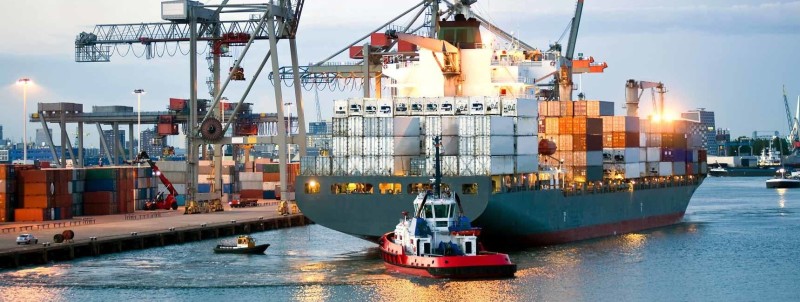
Are there any job opportunities in logistics? What does the future have in store for Australians in this sector? Having a secure job and future is a great feeling! But how many of us can say that?
Well, there’s been much reporting in the media recently of the Australian economy faltering with a $7 billion budget deficit forecast for 2018-19, resources prices plummeting and wage increases stagnating. But, it’s not all doom and gloom with jobs and opportunities in logistics due to greatly benefit from a number of Free Trade Agreements recently being signed.
The most recent and notable is the Chinese-Australia Free Trade Agreement or ChAFTA which is set to increase logistics jobs significantly. Also, if you’ve got the right advice on approaching the current job market, you’re in a great position!
What is it?
In November last year, the China-Australia Free Trade Agreement was completed and signed. Once it commences, 85% of Australian goods exported to China will be tariff free, rising to 93% within four years and up to 95% when in full force. So, due to decreased importing and exporting taxes there will be increased opportunities to deal with China’s large and growing economy.
According to the Department of Foreign Affairs and Trade background paper the agreement will enhance and protect Australia’s competitiveness with our largest trading partner and also attract growth-enhancing investment. The agreement will lay the foundations for an increase in trade in goods, growth in investment between the two countries and a rise in trade of services and knowledge based industries.
What’s it worth?
China’s economy is currently the world’s second largest, worth over $10 trillion and is growing at 7.7 percent annually. Currently Australia trades $159.6 billion annually and is our largest trading partner. With the reduction of trade barriers between the two trading partners Australian importers and exporters will have access to China’s 1.36 billion people and their booming economy.
The World Bank predicts that before 2030 China has the capability to become the world’s largest economy with solid growth rates and high consumption. For example, beef consumption in China is projected to rise by 236%, dairy consumption by 74% and sheep and goat meat by 72%. As our largest trading partner and with an ever larger growing population, China will rely heavily on Australia to supply them with fresh fruit and vegetables as well as dairy and meat.
Download our FREE Logistics Career, Salary & Course Guide!
Find valuable information on why you should become a Logistics manager, the latest Supply Chain industry insights, a detailed salary guide, course breakdown and more!
How will it affect logistics?
Senior lecturer of International Business Dr Jane Qiu at the Australian School of Business at UNSW said “One of the few sectors that will gain for both countries is logistic providers, transportation. So people in this industry will be happy, especially the cold chain providers required for meat products, dairy and wine. For cold chain providers, it will be very good news,”
With the FTA, this will improve access to the growing Chinese market. With increased trade between the two countries, the logistics infrastructure must grow to accommodate the vast amounts of goods being traded. Obviously this means that there will have to be increased investment in Australia’s roads, ports and rail to sufficiently deal with the logistics of moving these goods and services between the two countries which will create many job opportunities in logistics.
Outcomes of this agreement will flow on to the agricultural sector as China’s growing population will require increased food production. Resources will have less constricting taxes applied and be able to trade more freely cross-country. Manufacturing will have greater access to value chain opportunities. All this means that there will be more investment in new jobs and the capacity to deliver the benefits.
What do I need to do?
With over 6,000 jobs posted online only last month, logistics professionals are more in demand than ever and there are many job opportunities available. To break into the industry though, you’ll need to be equipped with the knowledge and skills necessary to tackle these challenging and rewarding careers. For this reason, the majority of today’s workforce are choosing VET qualifications to upskill and earn more. With CAL’s newly developed and most popular qualification, the Diploma of Logistics will provide you with all the skills you’ll need to hit the ground running.
Jobs that you could be doing after completing the Diploma of Logistics include:
- Logistics manager
- Logistics clerk
- Supply chain manager
- Road transport manager
- Distribution centre manager
- Inventory manager
- Stock clerk
Feel free to get in touch with one of our career advisors today to talk about the opportunities in logistics and how we can help you get there!
Your Career in Supply Chain Management
Do you want to learn more about supply management and logistics skills employers demand, emerging job roles and salaries, and recent industry insights?
Discover your career in supply chain management.
SUPPLY CHAIN CAREER PAGE





